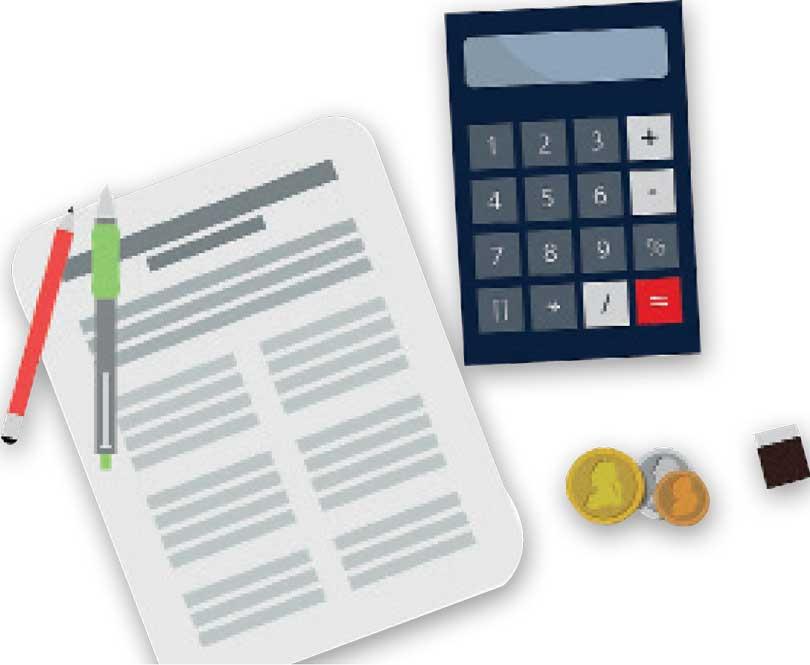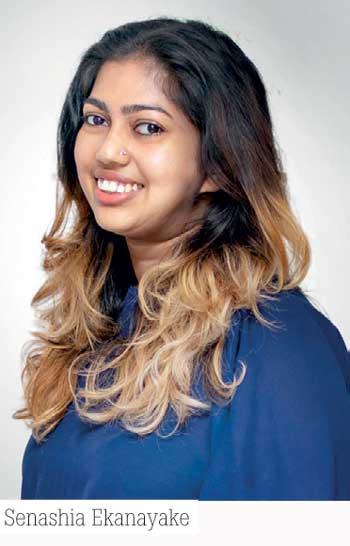01 Oct 2021 - {{hitsCtrl.values.hits}}

 Personal Finance in your 20s are a complete rollercoaster. One minute you are 19 and fresh out of school, never having heard the word ‘personal finance’ and suddenly you are somewhere in your 20s, torn between living your best life and experiencing the anxieties of saving for your future and that very, very distant retirement. Add all the uncertainties brought forward by the global pandemic into the mix, most of us in our 20’s are now seriously discussing our personal finance and financial goals with one big question – where do I start? In this mini-series, we talk to financial experts and non-experts on the art of managing personal finance; how to save, how to spend and where to invest.
Personal Finance in your 20s are a complete rollercoaster. One minute you are 19 and fresh out of school, never having heard the word ‘personal finance’ and suddenly you are somewhere in your 20s, torn between living your best life and experiencing the anxieties of saving for your future and that very, very distant retirement. Add all the uncertainties brought forward by the global pandemic into the mix, most of us in our 20’s are now seriously discussing our personal finance and financial goals with one big question – where do I start? In this mini-series, we talk to financial experts and non-experts on the art of managing personal finance; how to save, how to spend and where to invest.
THE BASICS YOU NEED A BUDGET
 Meet Senashia Ekanayake, a non-expert financial blogger under the moniker @seniinthebox. Senashia’s finance blog has become somewhat of a go-to when it comes to personal finances for young adults with readers finding her personal financial experiences and tips relatable and easy to apply. While Senashia is professionally a writer and a communications consultant, she started her blog to detail her own personal finance journey and share what she’s learnt along the way – having noticed a gap in financial advice that resonates in a Sri Lankan context.
Meet Senashia Ekanayake, a non-expert financial blogger under the moniker @seniinthebox. Senashia’s finance blog has become somewhat of a go-to when it comes to personal finances for young adults with readers finding her personal financial experiences and tips relatable and easy to apply. While Senashia is professionally a writer and a communications consultant, she started her blog to detail her own personal finance journey and share what she’s learnt along the way – having noticed a gap in financial advice that resonates in a Sri Lankan context.
Following our previous segment on savings, Senashia joins us on the next step - budgeting and how to go about it.
• Why budget?
I think “budget” comes with a lot of bad rep and I can understand where that comes from. Not having grown up with much, I too believed that “budgets” were equivalent to cutting corners, living on the bare minimum or even frugality. But of course, that is not what it is. I personally think a budget is a financial plan that you put in place to support you in managing your income and expenses.
So even if your earnings are small or excessive, you can always keep yourself in check and most importantly, understand where your money goes. Budgets also become a good way of knowing how much you pay as bank fees, other small costs you don’t account for (assuming that you don’t pay taxes yet) and actually knowing what your money can do for you.
• The best way to budget?
Have an accurate understanding of how much you get paid in a month - if you earn in foreign currency leave a bit more/less to adjust for rates. Having an idea of your expenses is also important. There are tons of free resources you can learn from online and usually an Excel sheet would do it after throwing in a formula! But this would be for a monthly budget. There are those who also do quarterly, bi-annual or even an annual budget but that to me really seems a bit excessive to be honest. It’s also important to add here that the budgets need to be revisited even if you are just budgeting for yourself and not a family/more than one person. Cost of living and inflation are very real and moreover even in the time of Covid for example, your travel costs can be low while your internet bill might look different.
• How do you track your expenses?
In the past I tried a few apps on my phone but I have settled into using an Excel sheet. I also use a note on my phone to make note of any on-the-go expenses that don’t give me bills or when I pay using cash that I later transfer to my finance tracking sheet. However, if Excel isn’t for you, there are a whole lot of free apps that you can download. If you are tracking finances with more than one person, it’s always good to always look for ones that have a collaborative functionality as well. Tracking expenses becomes important because it not only tells you what happens to your money and what you spend it on but moreover, you really get to take control of your money. Tracking also helps you identify any spending/budgetary allocations and make better financial decisions. For example, when we used to travel (lol), closer to a trip, my budget would change significantly as I would make more effort towards saving up for it a few months in advance.
Tracking expenses becomes important because it not only tells you what happens to your money and what you spend it on but moreover, you really get to take control of your money
• How do you identify fixed and discretionary expenses for your budget?
That’s a tough one! I like to start answering this by saying that everyone has different needs/wants and therefore this can look different to all and no two budgets are the same. I would ideally define “fixed” expenditure as things you cannot shake off, not within your control and all that would fit in the first tier of Maslow’s Hierarchy of Needs. So, think of all your bills, loan/lease payments and food, water and shelter. If you can and savings is important for you, add savings to this as well. Discretionary spending would be everything else! This means your restaurant and food deliveries too. However, if you are not in a position to cook due to your living circumstances, this would be a fixed or priority spending. The classification maybe up for contest and argument but it’s also important to understand what you consider as important money habits and financial goals for you as well.
• If you earn multiple incomes – should you have one budget or separate budget per income?
I would say one budget. Ideally even if you receive multiple streams of income, your expenses should remain the same. However, where and when you pay for certain expenses would definitely vary depending on when you receive a particular income. Having said that I also want to highlight two important things here. For example, if you are planning something big like a trip or even a wedding; then that would perhaps be a budget on its own and if you have supplementary incomes then it would be a good time to see how best you adjust them into one or more budgets.
The second thing is the aspect of lifestyle inflation. Perhaps also due to social conditioning, we believe that more money/an increment or a promotion should also come with an increase to our existing lifestyle. This can come in the form of an upgrade to our vehicles, fashion choices, restaurant options, or whatever you choose to spend your money on. While I’m not really one to judge, unless you are adjusting your budget for inflation or you genuinely need to get something because you’ve outlived a product, device or vehicle you are using, lifestyle inflation should try to be avoided at all costs. Sure, it’s always to buy something nicer, shinier, or “better” but it’s also good to bring it back down to what actual financial freedom can do to you.
A budget is good for:
Disclaimer: This article is for informational purposes only and should not be considered as finance/investment advice. Do independent research, talk to a financial advisor and/or seek independent advice where appropriate and necessary.
23 Nov 2024 23 Nov 2024
23 Nov 2024 23 Nov 2024
23 Nov 2024 23 Nov 2024
23 Nov 2024 23 Nov 2024
23 Nov 2024 23 Nov 2024